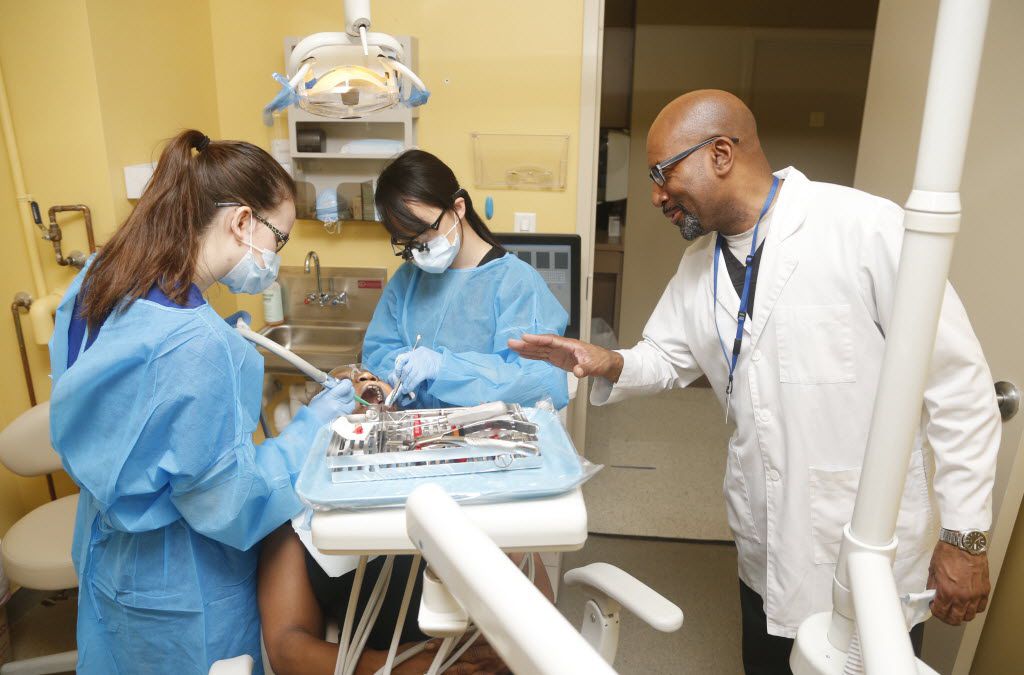Change Brings Opportunity – How to Stay Productive During the Covid-19 Crisis
Everyone is on edge with the COVID-19 virus that has suspended “essential” dentistry in Florida until May 8th, 2020. We thought it would be beneficial to discuss some key items that most business owners do not have time to analyze and consider as time is limited when seeing patients and dealing with the other daily headaches of running a business.
Deferring Bank Loans/Payments
First and foremost, almost all major lending institutions are postponing loan payments for 60 to 90 days. The catch is that most are NOT doing this automatically and you have to call and request this. These lenders are just extending your term 60 to 90 days. Some lenders are penalizing your credit for doing such and you should ask them how much they think this would affect your credit if you elect to take this deferment.
If you have debt on your practice still and your current interest rates are higher than 4% then it could make sense for you to refinance your loan. Or, do you need money to pay your bills during this time? There are ‘Dental’ lenders offering interest rates in the mid to high 3’s to refinance your existing debt OR to give you working capital to be able to pay your bills during this time.
Example, if you are five years into your ten-year term with a 5% interest rate, you can refinance the amount still owed over a new ten year term at a lower interest rate which would cut your payment in half (or less). This could be very valuable in a time like this where you may need more disposable income. We know lenders that are offering these terms and if interested, please reach out to us and we can connect you with these particular lenders.
Reviewing Business Expenses
This is a great time to review your practice from a business perspective. Go print out or ask your accountant for a 2019 Profit and Loss statement so that you can look over what you spent money on in 2019. Below are some guidelines as to what your expenses should look like. If your expenses are higher than what is cited below, you should be looking into as to why is this expense is higher than the norm. To figure this out, you take the expense and divide it by your revenue/income which will provide you a percentage. Ideally, your total business overhead should be running between 60% to 65%. If it is not, it would be to your benefit to figure out why it is not. Remember, you also need to ‘back out’ or ‘add-back’ your personal expenses that you may run through the business as these are not part of the business. Disclaimer, these are rule of thumbs.
Lab Bill: 7% to 8%
Supplies: 6% to 8%
Payroll: 20% to 25%
Rent / Mortgage: 5% to 7%
Office Expenses: 1% to 2%
Diving Deeper
When is the last time that you renegotiated your lease, overhead insurance, or insurance reimbursement? The typical answer? Never. Let’s discuss these three topics as these are things you can do NOW while you have down time.
Lease Agreements & Renewals
We cannot stress enough how important your lease is whether you are setting yourself up to sell in the near future or plan to drill for 20 more years. As a dental practice owner your two biggest expenses are payroll and your rent/mortgage payment to where you need to manage these expenses to make sure your business is profitable.
Your typical lease term for commercial is done in five-year increments with option(s) to renew for “X” years. When you sign a new lease or renew your lease it is vital that you, as a tenant, get something in return. This could be in the form of reduced rent or tenant improvements (also known as T.I.).
Let’s first talk about reducing your rent payments as this is something we see NOT happening often. In your lease, you more than likely have a yearly increase. This number usually ranges between 2% and 4% per year to where 3% is the commercial lease norm. If your rent increases by 3% per year and you never negotiate it over a ten-year span, then you could be paying well over fair market rent. What most people do not understand is that this 3% increase COMPOUNDSyearly. You are paying 3% on top of the 3% increase from last year and so on.
Example:
Base Rent in Year One: $3,500.00 per month
Base Rent in Year Two: $3,605.00 per month
Base Rent in Year Three: $3,713.15 per month
…
Base Rent in Year Ten: $4,566.71 per month
Difference of $1,066.71 per month from year one to year ten!
We highly recommend you use an attorney to help you with these negotiations and NOT a real estate broker or advisor as the broker will tell you that it will not cost you a penny then demand the landlord that they are going to pay them a commission otherwise they are going to find you (the dentist) a new location. This can go South very fast in various regards. We are a real estate broker and you heard it directly from us as to how to handle it…This is a tricky process and should be started six to nine months prior to when you have to give notice to your landlord for renewal. Most commercial leases say that you have to give the landlord notice six months prior to the lease expiration date but we have seen some at even nine months. You want to start this negotiation process six to nine months before you have to give notice as this gives you leverage in the negotiation process. If you start the negotiations too late, the landlord knows you won’t have enough time to relocate and that you are bluffing. In closing, you are able to renegotiate your rent back down to fair market value.
If you are paying fair market rent already, something else you can do is ask the landlord to provide a tenant improvement allowance for you to fix up your space. Whether it be new ceiling tiles, flooring, paint, or cabinets – the landlord should keeping your space modern for you! When we walk into a practice that a doctor wants to sell and he has been in the same plaza and location for 20 years and they still have 1970s décor, it makes us cringe! The landlord should be providing you with money or free rent to enhance your space at least every ten years.
Overhead Insurance & Insurance Reimbursements
Have you been with the same insurance company for general office insurances and malpractice insurance for the last 20 years? As in anything, there are always other businesses that would love to have your business to where they will get more aggressive in order to do so. We have a few companies that provide such services and we would be happy to give you these contacts so that you can compare rates. I do not know about you but I would love to save an extra $2,000.00 every year.
Are you in network with PPO or HMO plans? Did you know that you can negotiate the reimbursement fees that you get paid? There are a lot of variables here as to how much, if any, you can get an insurance company to pay you but I promise you will be able to get a few to do such. If you can get five of the PPO plans that you are in network with to give you an additional $35.00 per crown, it would be worth it right? There are companies we know that do this for you.
Did you have a slow 2019 and are you thinking about getting on more insurance plans? The same people who help you negotiate your fees can also help you credential with more insurance plans while maximizing your reimbursement.
Stay safe and we will get through this together. If you need contacts for any of the services mentioned above, send us an email and we will get the information over to you. These expenses mentioned are really the tip of the iceberg as you should be doing the same with lab and supplies as well. None the less, we hope you found this information helpful. Time for you to get to work!
Sincerely,
Your Doctor’s Choice Team







